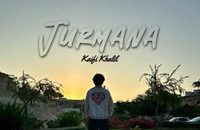The fourth episode featured an exciting combination of soulful solo performances by the melodious Sanam Marvi, classical singer and Coke Studio debutant Aizaz Sohail, and king of Punjabi rap, Bohemia.
Coke Studio 2020 released the fourth episode of the season on the festive day of 25th December 2020. The episode featured Sufi stalwart Sanam Marvi, classical singer and emerging artist Aizaz Sohail (who is making his debut this season) and king of Punjabi rap Bohemia.
The Episode 4 of Coke Studio 2020 featured an exciting combination of soulful solo performances by industry veterans and emerging acts. The first song is by the melodious Sanam Marvi who performed Anbhol, classical singer Aizaz Sohail gave his vocals to Megh, an experimental North Indian classical track, and BOHEMIA, the pioneer of punjabi-rap, performed an upbeat desi hip-hop track Saari Dunya.
Anbhol is a semi-classical spiritual song on the woes of worldly love. Composed in Raag Aiman, an Indian classical raag of Kalyan thaat, is a delicate raag that expresses itself through the longing of a lover waiting for their beloved. “This song is twofold, one part that takes you towards Ishq-e-Majazi (love for your fellow human/worldly pleasures) and the other towards Ishq-e-Haqiqi (love for God Almighty). What you realize is that love for anything that is material or worldly is never truly lasting,” says Marvi.
ANBHOL can be viewed at: https://www.youtube.com/watch?v=tq_iJI3gsTU
The second song of the episode is Aizaz Sohail’s debut solo on the platform. Megh, which is a song associated with the monsoon rains, has a psychedelic, bluesy feel accompanied with a lot of ambient sounds. “The words used in this bandish are from old Hindi, Sanskrit and Urdu. The bandish is ‘garje ghaṭa ghan, kaare re kaare, paawas ritu aaye, dulhan man bhaaye’ meaning that there are many clouds coming together above us and with them they bring rainfall. The poet describes the serenity of rainfall and nature by comparing it to the beauty and excitement of a new bride arriving,” explained Sohail.
 MEGH can be viewed at: https://www.youtube.com/watch?v=PBX864jxHBc
MEGH can be viewed at: https://www.youtube.com/watch?v=PBX864jxHBc
The third song, performed by the architect of desi hip-hop Bohemia, is called Saari Dunya. Written in collaboration by Bohemia and lyricist Asim Raza, the song is about the artist’s personal life shared through the performance of his art – rap. The lyrics of the song explain an artist’s struggle and the downside of fame leading to the disillusionment of worldly/material gains. Explaining the lyrics, Bohemia said, “In Saari Dunya, I am describing Bohemia as an artist being introduced to the industry, coming [of age] into the scene, planting seeds into the soil and seeing them grow, seeing them get to a level now where those trees have to be used for other purposes.” The departure of the song is dark and almost theatrical when it goes into the line “andheron mein shama” to show the contrast of light coming out of darkness. This line also encompasses the main premise of the song – hope and light emerging from darkness.
SAARI DUNYA can be viewed at: https://www.youtube.com/watch?v=tEibaYYqOg8
The aim of this season has been to spread the message of hope in the wake of Covid19. In order to help people cope and recuperate from the impact of the devastation this pandemic has wrought, special songs playing around the hem of spirituality, inclusion, self-belief, empowerment, yearning and longing were crafted. Coke Studio 2020 had the keen understanding that the music required at this time was not just to give brief respite but it also needed to be reflective, introspective and a representation of one’s inner self.
The house-band on Coke Studio 2020 includes producer Rohail Hyatt himself on the keyboards and acoustic guitars, Asad Ahmed on the electric guitar, Kamran ‘Mannu’ Zafar on bass, Babar Khanna on eastern percussions, Shehroze Hussain on the sitar, Nawazish Nasri on rabab, and Abier ‘Veeru’ Shaan on percussions. The backing-vocals this season have featured Nimra Rafiq, Wajiha Naqvi, Kumail Jaffery, Shahab Hussain, and Zara Madani. Given the new format and advantages of technology, this season also collaborated with international musicians from across the world including Turkey, Nepal, Lebanon and Serbia. In fact, Turkish artist, Volkan Öktem, has also joined the house-band this season featuring on the drums.
Coke Studio 2020 was administered under a careful management and maintenance of COVID-19 SOPs which resulted in both singers and musicians being recorded separately. Despite these challenges, Coke Studio was committed to releasing a season as an opportunity to keep hope alive amidst difficult times. Given the extraordinary circumstances under which this year’s season has been produced, it will be deliberately referred to as Coke Studio 2020 and not Coke Studio Season 13. The core values of the Coke Studio platform have always been to explore, experiment and share the unique music of Pakistan and the sub-continent with the rest of the world. Hence, with this evolving discovery of the Pakistani identity also continues the journey of Coke Studio and its music.
For information and updates, log onto www.cokestudio.com.pk, https://www.youtube.com/user/CokeStudioPk or www.facebook.com/cokestudio and look for the hashtag #CokeStudio2020 to follow the Coke Studio journey.
PRODUCER PERSPECTIVE – ROHAIL HYATT
ANBHOL
YouTube Link: https://www.youtube.com/watch?v=tq_iJI3gsTU
Anbhol began as a different song but since we couldn’t ascertain the original composer/lyricist of that particular song and with multiple people claiming the ownership to it, we decided to use the melodic inspiration from that track but have new lyrics written to it. Given the copyright scenario we faced in season 12, I felt my ‘twice shy’ moment this time around. Now I’m left wondering if someone will lay claim to Raag Aimen as well. Sometimes bad things need to happen in order for some good to flow. So here is another round. Anbhol, inspired from the song ‘dil soch samajh ke laaween’ in Raag Aimen. Let’s see how this plays out with the apparent stakeholders of public domain music.
One of my favourite singers, Sanam Marvi and I have worked on a lot of songs together for Coke Studio but she never runs out of ideas. I remember meeting her last year and she downloaded around 20 ideas on me. I look forward to working on them in time. She is truly amazing. Dil Soch was very close to her heart and when I gave her the news that we might need to drop the song because of a copyright threat, she was very disappointed. That’s when I decided to get new lyrics written and she took to these wonderfully well. The song is about the disillusionment of worldly attachments and the salvation of Divine love.
Raag Aimen has the same notes as the western modal scale ‘Lydian’ and they both blend in rather well. In trying to understand the melodic structure, I realized that when Sanam was left to sing the song naturally, she sang in this interesting 3 cycle repetition which suggests that the song might have been originally composed in 6 or 12 beats. One comes across a lot of local songs that have this sort of DNA. So rather than changing the cycle into a 4 count structure, I stayed with the 3 cycles and composed around it with a progression of D, E, F#m, E, D, E and this loop repeats itself for almost the entire song until the end passage where it changes into a 4 cycle arrangement. All naturally, mind you. I was just taking the cues from the structure Sanam sang. This end passage is in the D, E, F#m, E cycle.
Some of you will notice that the guitar solo doesn’t have a video. That’s because this is from a demo we recorded earlier. I opted to keep the old solo maybe because I had gotten used to it or the original one flowed closer from the source. Who knows. Sorry about the missing video for this but our gratitude goes out to the guitarist Nenad Gajin for his contribution to the song.
I’d also like to thank the Serbian house band that have been part of the Coke Studio journey since season 6. They are an amazingly talented bunch and even more amazing as human beings. Jovan, the drummer has gone out of his way this season to make impossible things possible purely out of his love for music. I cannot thank him enough for his help.
MEGH
YouTube Link: https://www.youtube.com/watch?v=PBX864jxHBc
Aizaz is a national asset. There are very few people as talented as him around us and we must go out of our way to appreciate and respect them. Besides being an amazing person, he is also blessed to have been taught by some of the best ustads out there. He has a band called Mughal-e-funk and loves to experiment with his art form. A true sign of a creative soul. I hope to work with him on other occasions. 
North Indian classical music is an interesting blend of different influences. When one talks about these influences, it upsets some people. This is understandably so because everyone likes to take credit for their part of the influence. My research tells me that the very old and complex art form found and well preserved in the Carnatic and Indian classical art-forms merged with Persian, Arabic, Central Asian and Turkish influences and thus became the widely understood North Indian Classical music. I’m not sure why everyone can’t own a bit of the pie here. It’s an art form at the end of the day. It doesn’t belong to a certain people – it belongs to everyone! Yes things have a root and all the musical influences in North Indian classical have their own roots. But we are talking about the combined aspect of this blend. Despite being pressured into taking a side in this debate, I try not to politicize my perspective. There’s enough politics of division out there to keep the extremists happy on both sides. I feel music needs to remain something in the middle that unites us instead.
Anyway, back to the song. Megh is a rainy season pentatonic raag. There’s no 3rd so there’s no major or minor of the root D. I’ve stayed true to this and created a flow of chords that stay true to the scale. I found some nice movements that were reminiscent of good old ‘Floyd-like’ chords but of course these are different because of self-imposed constraints. I feel the original intention of the composition is better preserved this way. Of course, there’s no right or wrong here – just different choices and I chose to make this one.
I’ve been wanting to work on a Vilambit tempo for a while. And the first opportunity I got, I’ve run from it. Run in the sense that this bandish is actually in 15 BPM ektaal (12 beats) So at 15 BPM the bandish (structure) is 1 bar long. I’ve moved it up to 60 BPM and fit it into a 48 beat cycle which are 4, 12 beat cycles or 3, 16 beat cycles. That’s what the musicians are playing to in the 2nd part of the song (i.e. after the freeform alap in the beginning). This creates an interesting sub-divisional feel to the melody and is quite mesmerizing if you’re into this sort of stuff! The 3rd part (dhrut) is in Jhaptaal (10 beats). We just loved jamming to this. I love the way Volkan has taken to playing drums on our music. I feel so blessed to have come across him this time. I actually tried to get him to play with us in season 6 but it didn’t work out. Good to see what fate had in store for us. He has been amazing! A true professional and an amazing drummer and is considered to be one of the best drummers in Turkey. Can’t wait to jump into more recordings with him!
Okay so I believe that the more commercial music lovers of Coke Studio have put a bounty on my head! I think I better run for the hills after this song gets released!
SAARI DUNYA
YouTube Link: https://www.youtube.com/watch?v=tEibaYYqOg8
It’s amazing to see the growth of Bohemia. The admiration I have for him and his personality cannot be understated. He writes songs from his heart and it shows. When he shared Saari Duniya with me as a demo, I loved it instantly. Something about it just clicked. Subsequently the song has gone through some changes but the core message stayed the same. Being an artist, it must be very difficult to share your original creation with another person and let them do whatever they like with it. I don’t think I’d be able to do this because I find it very difficult to let go of my work. I even have to record and mix my own songs. So a big thank you to the artists who do let go. It’s a big responsibility to manage.
So I saw this song representing the cyclic nature of things. What goes up, must come down. That’s how balance is restored. I’ve seen this phenomenon play out over and over again. So many artists crave fame and when they find it and lose it, the downside for them is really bad. The good thing is that the downside passes as well. Bohemia tells us about the plight of being used as a disposable commodity by the ‘music industry’ but he roars back with his conviction and self-belief! I’m the light in darkness he says! He narrates how he felt cut down by the politics of the music industry! And yes, the politics can get quite ugly! Glad Bohemia is bouncing back from it positively and sharing his experiences with us.
This song has a strange chant-like opening and closing part! I had found this loop somewhere and I had used it as a placeholder for something traditional in the song. When we realized we would not have any traditional artists come in because of covid restrictions, everyone still felt this part had to be preserved. So we got the backing vocalists to sing this as an intro and outro to the song. The original part was in some strange subcontinental language and the only words I understood from it were ‘munda kaka’. Not sure what that was but if someone connects the dots, please do share the info!
This brings us to the end of our journey this year. Well not exactly the final end, but the end of the episodic season. It’s been a lovely journey and I’d like to wish everyone a safe transition into the next year. I’d like to leave you with an understanding I have experienced. If we put out positive thoughts into the universe, the universe reciprocates in the same manner. These are tough times and one can find a lot of reasons to be negative. But we all must stay positive. Be the light in darkness! Thank you for the love, appreciation, criticism, suggestions, advice, lectures – and from some people, even the hatred. It’s truly wonderful to be at the receiving end of anything that constitutes an experience – good and bad are just labels. All experiences are a treasure. A warm thank you to my team, the musicians, the artists, the audience and everyone else who has been a part of this journey! Hope to connect again sometime.
Press Release by Lotus PR




